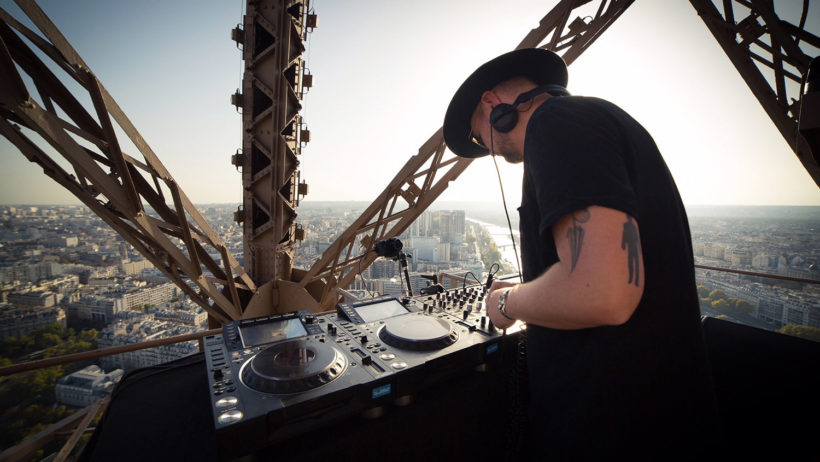On an October day in Paris, it should be at best chilly, and at worst teeming with rain. But the evening Danish producer Rune Reilly Kölsch — better known as Kölsch — is due to play his most remarkable open-air gig yet, the sun is shining and the skies are clear. It feels more like summer than fall.
The absurdly fine weather is another stroke of luck for the producer, who lately can’t seem to put a foot wrong. At the suggestion, though, that 2017 has been the biggest year of his career, he looks faintly uncomfortable. “I guess so… I don’t know… it’s hard to do the math when you’re in the middle of it,” he says with a nervous laugh.
Stood up here on the second floor of the Eiffel Tower, where he is about to play a coveted sunset DJ set for French production crew Cercle, the math seems pretty straightforward.
It’s a once-in-a-lifetime gig that comes after a huge few months for the great (he’s 6’4”) Dane. He reprised his popular residency on BBC Radio 1, where he has interviewed the likes of Sasha and Neil Tennant of Pet Shop Boys; he was one of the inaugural residents at Ibiza’s new Hï nightclub, former home to the beloved Space; and he’s just released 1989, the final installment of his deeply personal trilogy of albums chronicling his childhood.
He dabbled with guitar and drums and aged about eleven, was lead singer in a band called Rune and the Motherfuckers. “It was a weird concoction of rap and Prince covers,” he laughs. “It was very silly.”
Around the same time he was doing radio and DJing in a youth club, playing Technotronic, Kaoma’s “Lambada” and “whatever was popular at the time”. At 14, he got an Amiga 500 and discovered he could recreate the samples he’d unsuccessfully tried to imitate as a drummer. Kölsch the producer was born, but it would be years before he’d assume his current guise.
With his half-brother Johannes Torpe, he formed the house duo Artificial Funk in 2000. “We had the worst performing Top 40 hit in the UK ever. It was in the top 40 for one week.” Kölsch laughs. “But it was fun, we had a good time.”
Then there was their ENUR project, including 2008’s Raggatronic album. “We wanted to make like a Groove Armada-type thing with wider appeal than just dance music,” says Kölsch. It was a short while after their father passed away, and the record “totally flunked”, but it didn’t matter. “We still made the music.”

